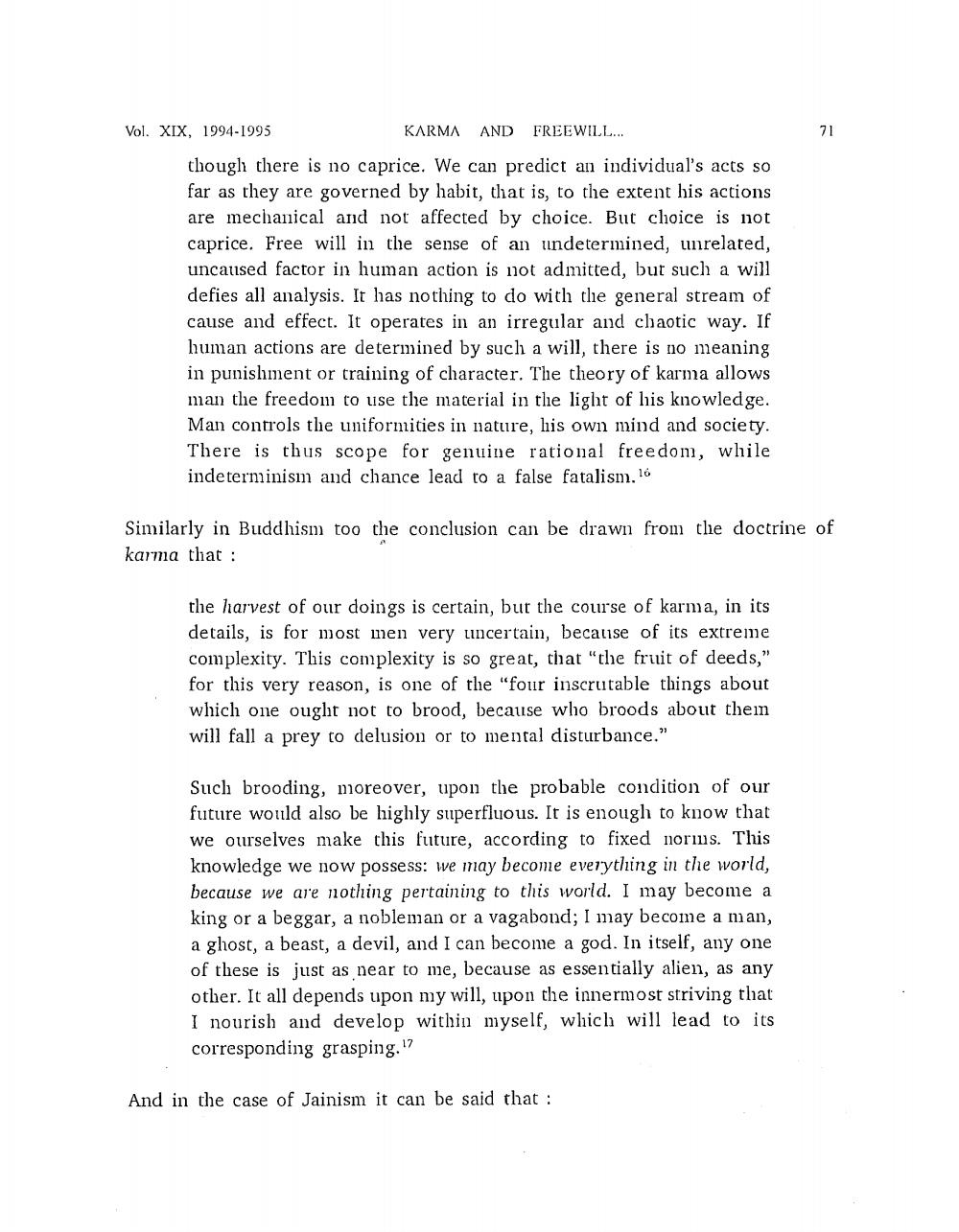________________
KARMA AND FREEWILL...
though there is no caprice. We can predict an individual's acts so far as they are governed by habit, that is, to the extent his actions are mechanical and not affected by choice. But choice is not caprice. Free will in the sense of an undetermined, unrelated, uncaused factor in human action is not admitted, but such a will defies all analysis. It has nothing to do with the general stream of cause and effect. It operates in an irregular and chaotic way. If human actions are determined by such a will, there is no meaning in punishment or training of character. The theory of karma allows man the freedom to use the material in the light of his knowledge. Man controls the uniformities in nature, his own mind and society. There is thus scope for genuine rational freedom, while indeterminism and chance lead to a false fatalism. 16
Vol. XIX, 1994-1995
Similarly in Buddhism too the conclusion can be drawn from the doctrine of karma that:
the harvest of our doings is certain, but the course of karma, in its details, is for most men very uncertain, because of its extreme complexity. This complexity is so great, that "the fruit of deeds," for this very reason, is one of the "four inscrutable things about which one ought not to brood, because who broods about them will fall a prey to delusion or to mental disturbance."
Such brooding, moreover, upon the probable condition of our future would also be highly superfluous. It is enough to know that we ourselves make this future, according to fixed norms. This knowledge we now possess: we may become everything in the world, because we are nothing pertaining to this world. I may become a king or a beggar, a nobleman or a vagabond; I may become a man, a ghost, a beast, a devil, and I can become a god. In itself, any one of these is just as near to me, because as essentially alien, as any other. It all depends upon my will, upon the innermost striving that I nourish and develop within myself, which will lead to its corresponding grasping."
71
And in the case of Jainism it can be said that:




